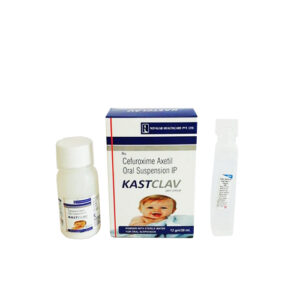- Home
- PAEDIATRIC DRY SYRUP
- Hydroxyzine Hydrochloride Syrup


Hydroxyzine Hydrochloride Syrup
CONITREX
Enquiry about Hydroxyzine Hydrochloride Syrup

CONITREX is the fusion of Hydroxyzine Hydrochloride Syrup which is an antihistamine medication used to treat various allergic conditions such as itching, hives, and skin rashes. The active ingredient, Hydroxyzine, works by blocking the effects of histamine, a natural substance in the body that causes allergic reactions. The syrup is available only with a doctor’s prescription and is usually taken orally, with or without food. It is important to follow the dosage instructions provided by your doctor or pharmacist, as the dosage and duration of treatment may vary depending on your condition.
In addition to treating allergic conditions, Hydroxyzine Hydrochloride Syrup may also be used to relieve anxiety and tension and to prevent or control nausea and vomiting. It is sometimes used as a sedative before and after surgery, and to treat certain mental health conditions such as anxiety disorders and alcohol withdrawal symptoms. As with any medication, it is important to inform your doctor if you have any pre-existing medical conditions, are taking any other medications, or are pregnant or breastfeeding before using Hydroxyzine Hydrochloride Syrup.
Uses of Hydroxyzine Hydrochloride Syrup
Hydroxyzine Hydrochloride Syrup works by blocking the effects of histamine, a natural substance in the body that causes allergic reactions such as itching, hives, and skin rashes. It does this by binding to histamine receptors, preventing histamine from causing its typical inflammatory response in the body. Hydroxyzine Hydrochloride Syrup also has sedative effects, which can help to relieve anxiety and tension. It works by blocking the effects of certain chemicals in the brain, leading to a calming effect. The exact mechanism of action is not fully understood, but it is thought to involve blocking certain neurotransmitters in the brain.
- Treatment of various allergic conditions such as itching, hives, and skin rashes
- Relief of anxiety and tension
- Prevention or control of nausea and vomiting
- Sedation before and after surgery
- Treatment of certain mental health conditions such as anxiety disorders and alcohol withdrawal symptoms
Possible Side Effects
Hydroxyzine Hydrochloride Syrup can cause some side effects to some individuals in some cases. Have a look at them.
- Drowsiness
- Dizziness
- Blurred Vision
- Constipation
- Dry Mouth
Directions For Use
- This syrup is a medication that belongs to the antihistamine class of drugs.
- It is used to treat symptoms of allergies, such as itching, sneezing, and runny nose.
- It is also used to treat anxiety and tension and to help patients relax before surgery.
- The medication works by blocking the effects of histamine, a substance produced by the body during an allergic reaction.
- This syrup is available only with a doctor’s prescription and should be taken exactly as prescribed.
- Patients should not exceed the recommended dosage, and should not take this medication for longer than prescribed.
- It can cause drowsiness, so patients should avoid driving or operating heavy machinery while taking it.
- Patients should also avoid drinking alcohol while taking Hydroxyzine Hydrochloride Syrup, as it can increase drowsiness and impair coordination.
- This syrup may interact with other medications, so patients should inform their doctor of any other medications they are taking before starting this medication.
Safety Precautions
- This syrup may cause drowsiness or dizziness, so patients should avoid activities that require alertness, such as driving or operating heavy machinery until they know how the medication affects them.
- Patients with liver or kidney disease should use caution when taking Hydroxyzine Hydrochloride Syrup, as the medication is processed by these organs and may accumulate in the body.
- Patients who have a history of seizures should use Hydroxyzine Hydrochloride Syrup with caution, as the medication may lower the seizure threshold.
- Patients who are pregnant or breastfeeding should consult with their doctor before taking Hydroxyzine Hydrochloride Syrup, as the medication may pass into breast milk or affect the developing fetus.




